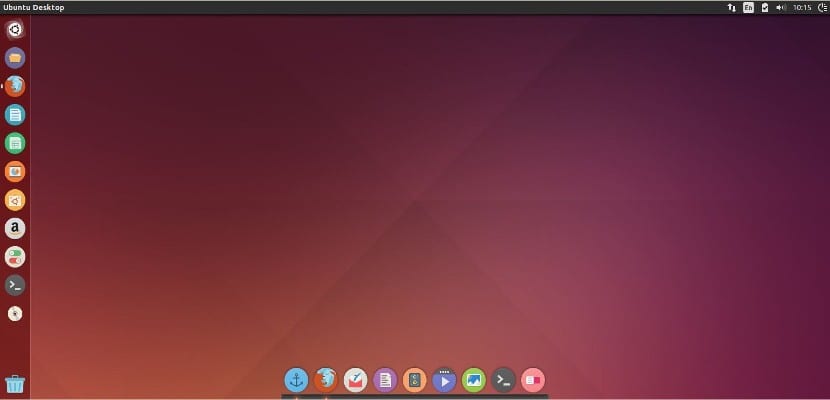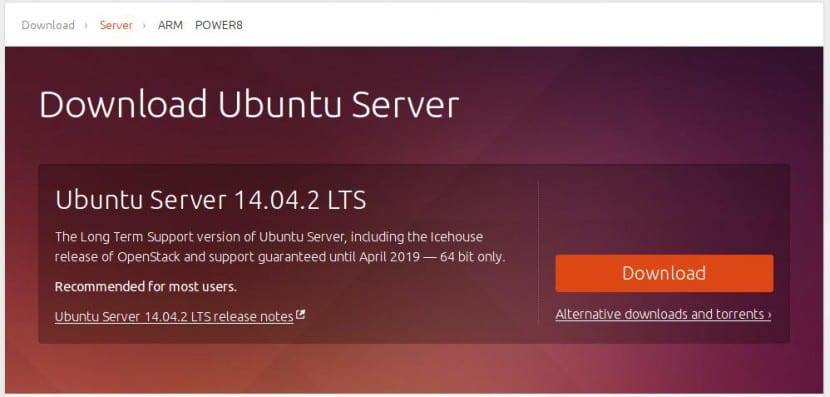
In Canonical they say that companies switching to Ubuntu could save up to 70% of what it would cost to upgrade to Windows 10. This we have learned in a post in the official blog of the company qualified Windows 10: Is it finally time to migrate to Ubuntu?, which translated into Spanish would mean Windows 10: Is it finally time to migrate to Ubuntu?. In it, Canonical say to stay on Windows may be business-friendly, but not the best choice.
As we said before, in Canonical they talk about migrating to Ubuntu can reduce maintenance and user training costs up to 70%. They also comment that "the huge consumption of resources and expensive licenses have ended up discouraging even the most passionate Windows fans." All this without mentioning the privacy issues stemming from Windows 10.
According to Canonical, "this is probably the best time to look at other options."
Is it time for alternatives?
It is curious to think that Canonical is not alone when it comes to up the ante on Ubuntu while in the rest of the world Microsoft is seen being reborn from its ashes as if it were a phoenix. As commented on OMG! Free!, the computer manufacturer Dell introduced a new Chromebook designed especially for the company, from the hardware al for mobile devices to report the.
Industry analysts also expect to see growth of Google's personal computer system in enterprises, as critical tasks are performed in the cloud and local needs are handled through virtualization. The inherent security of Chrome OS is also another reason it is expected to grow. Of course, Ubuntu also has a few solutions that are worth contemplating.

At Microsoft they have announced that there are already 75 million PCs running Windows 10 worldwide, although it has not been disclosed how many users are domestic and how many corporate. This is reminiscent of when, in 2011, Canonical said they wanted Ubuntu to reach 200 million users in 2015. The launch of Ubuntu Snappy and Ubunu Touch have turned that goal into something more plausible. All things considered, it is worth noting that with Ubuntu Touch you have a fully functional Ubuntu in your pocket. If the ecosystem of applications grows enough and they are added third parties The ones that other mobile systems do have can give a lot to talk about.
However, and despite what was stated by Canonical, in a Tech Republic post we have learned that analyst Gartner says that businesses are more interested in moving forward with Windows 10, with numbers far greater than the number of companies interested in Windows 7.
With these data in hand, it cannot be denied that there doesn't seem to be much interest in migrating to Ubuntu in the corporate sector, despite what was stated by Canonical. Whenever there is talk of introducing Linux into production systems - suppose for example on client workstations controlled by a server - there is an internal debate about maintenance costs. The truth is it would be saved by migrating to Linux, but it must also be taken into account that it is necessary to offer training to personnel to readapt them to the new system.
It is a very complex debate, and for many reasons in favor of using Ubuntu on home systems the corporate sector is another world where you have to take many aspects into account.
Yes, the answer to the question in the article is clear and simple. YES.
I also agree that Ubuntu is better.
Although I understand the challenges that this change poses for companies, I do not know why these companies, so daring in other aspects, are so afraid of retraining people and trying new things that in the medium long term it will save them money.
This article explains absolutely nothing.
windows sucks, ubuntu very difficult to maintain
The problem is the programs that only work in windows, the programs that have no counterpart in linux ect ... I myself am trying to switch to Ubuntu and I only find obstacles. For example I try to install xrdp to have remote access to my computer and I have problems to reconnect to the previous session, to be able to close the session ect ... It takes 10 times the time in Linux to achieve the same as in pathetic windows.
In Ubuntu there are no programs for development and if they are very tedious when configuring
I think there should be a linux for everyone and then all the distros that advanced users want. But it seems that there is no interest in attracting normal users to the world of the Linux desktop; a shame. A universal installer, an easy and powerful desktop and not depending on command windows for almost anything; a utopia come on.
I am a desktop user on Linux, I am not dedicated to programming or configuring servers. Through several years of use I see that it is no longer difficult to install or use Linux. It is true that when you want to 'dual boot' or 'tune' the desktop, you must know the system in a deeper way: the programs that compose them, the different desktop environments, routes to add icons and themes, know how to configure the bios (in the case of dual boot), etc. But that is learned with the experience that only gives the constant use of the system and the curiosity of each user. I have installed the system for several friends and clients (of all ages and from Windos experts to digital illiterates) where I as an «expert user» configure the look & feel of the desktop, add some shortcuts, give a quick training, and the user stays very happy because the machine never slows down, there is no virus and it has the necessary tools for the home and office user. I think that in order for there to be a growth in the number of users, the best thing is that we take the users together to experience Linux in daily life by accompanying them. They realize that it is not the system full of commands and terminal screens with which Linux and its "geek" community are cataloged, but a system that today is very user-friendly in its interface and that you can use with simplicity or complexity. that each one wishes.
I haven't used Windows for a long time, but Ubuntu version 15 is making me remember the years I used it. 🙁